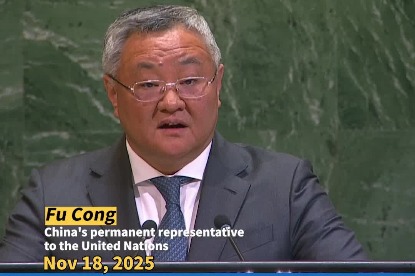EU to ease AI rules as Meta faces Spain probe


The European Union is loosening its artificial intelligence and data curbs to spur its tech sector even as Spain investigates Meta for alleged large-scale spying, demonstrating the bloc's struggle to balance competitiveness and privacy.
Spain's parliament on Wednesday opened a probe into the US company Meta over alleged "systematic and massive" spying on Facebook and Instagram users, while the European Commission unveiled proposed delays to the rollout of its landmark AI restrictions as part of a broader push to streamline digital rules and be more globally competitive.
"In Spain, the law is above any algorithm or any large technology platform. And anyone who violates our rights will pay the consequences," said Spain's Prime Minister Pedro Sanchez in a statement.
He said the government would introduce measures to counter "disinformation", protect minors, eradicate "hate speech" and curb the violation of citizens' privacy.
Sanchez's office said the probe follows international research indicating Meta used a hidden mechanism to monitor Android users' web activity. Meta said it would cooperate with Spanish authorities on the matter.
"Meta takes privacy very seriously and provides a range of tools to help people control how their data is used. We look forward to engaging constructively with the authorities on this matter," a Meta spokesperson said.
US President Donald Trump's administration has criticized the EU's Digital Markets Act, aimed at curbing the power of the biggest tech companies, and the bloc's Digital Services Act, which requires large platforms to address illegal and harmful content.
The EU's landmark tech rules have also drawn criticism from European businesses and governments, who warn they could hamper growth.
Brussels denies yielding to external pressure but has pledged to ease the burden on companies across the 27-nation bloc.
The Commission has proposed broader data access to train AI models when it is for "legitimate interests", up to 16 months' extra time for companies to comply with "high-risk" AI rules, and fewer cookie pop-ups without weakening privacy. These measures must now gain approval from EU lawmakers and member states.
The European Parliament's centrist bloc has backed moves to "modernize" the rules but warned of a "possible weakening" of data protections.
"Simplification cannot come at the expense of the safeguards that protect Europeans' privacy, data, and fundamental rights," the group said.
Speaking to reporters in Brussels on Wednesday, European Commissioner for Tech Sovereignty, Security and Democracy Henna Virkkunen said: "Our rules should not be a burden but the added value. For this, we need immediate steps to get rid of regulatory clutter."
































